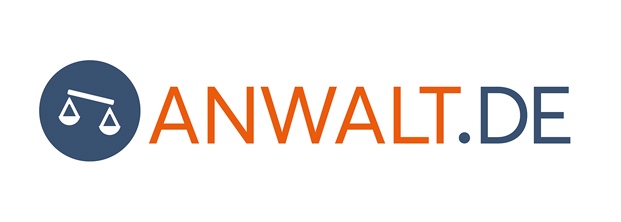In der 20. Legislaturperiode hat sich der Bundestag damit beschäftigt, wie Vorgänge zwischen Bürger und Behörden oder etwa zwischen Arbeitnehmern und Arbeitgebern erleichtert werden können. Das Verschlanken und Vereinfachen vieler Vorschriften soll allen Beteiligten zugutekommen. Zeitersparnis, ein geringerer Verwaltungsaufwand auf der einen Seite und eine bessere Verständlichkeit für Bürgerinnen und Bürger auf der anderen Seite waren das Ziel.
Am 18.10.2024 hat der Bundesrat der entsprechenden Gesetzesänderung zugestimmt, das Vierte Bürokratieentlastungsgesetz, kurz BEG IV, ist seit dem 01.01.2025 in Kraft. Viele darin enthaltenen Formerleichterungen wirken sich auf das Arbeitsleben aus. Was früher in Schriftform, also als Ausdruck auf Papier, erfolgen musste, kann nun in Textform, als Datei oder E-Mail, erledigt werden. Auch Anträge wie beispielsweise auf Elternzeit sind dadurch in digitaler Form möglich. Gesetzübergreifend wurden dabei nicht nur die Vorschriften des Bundeselterngeld- und Elternteilzeitgesetzes (BEEG), sondern auch Regelungen im Sozialgesetzbuch (SGB IV), dem Nachweisgesetz (NachwG), dem Arbeitnehmerüberlassungsgesetz (AÜG) und der Gewerbeordnung (GewO) getroffen.
Wie so oft gilt der Grundsatz “Keine Regel ohne Ausnahme”. Welche Bereiche im Arbeitsrecht vom BEG IV profitieren und wo nach wie vor die Schriftform erforderlich ist, zeigen wir hier auf.
Arbeitsverträge in Textform – das gilt jetzt
Arbeitsverträge dürfen künftig per E-Mail an Arbeitnehmer übermittelt werden. Dies ist vor allem für all diejenigen Arbeitnehmer von Vorteil, die gerne auf unnötiges Papier verzichten und ihre gesamte Korrespondenz mit dem Smartphone oder dem Laptop erledigen. Was an Arbeitsbedingungen mündlich besprochen oder als Entwurf zugemailt wurde, kann durch die sinnvolle Gesetzesänderung auf kurzem Wege fixiert werden.
Für Arbeitnehmer hat dies zudem den Vorteil, dass alle Arbeitsunterlagen auf dem Rechner oder Handy in einem Ordner abgespeichert werden können. Langwieriges Suchen und Blättern in papiergestützten Unterlagen entfällt. Dies ist dann praktisch, wenn für Sozialversicherung und Krankenkasse, das Finanzamt oder das Jobcenter entsprechende Unterlagen benötigt werden.
Möchte ein Arbeitnehmer zusätzlich – oder statt einer Datei – die Schriftform, so müssen sie diesen Wunsch dem Arbeitgeber mitteilen. Er ist dann verpflichtet, wie bisher einen ausgedruckten Arbeitsvertrag persönlich auszuhändigen oder zu übersenden.
Ausnahmen gelten jedoch in bestimmten Wirtschaftsbereichen, die aufgrund ihrer Struktur von Schwarzarbeit bedroht sind. Um diese und andere Formen der illegalen Beschäftigung auszuschließen, sind zum Beispiel das Gaststättengewerbe und das Baugewerbe von der Neuerung ausgeschlossen. Für welche Bereiche das ebenfalls zutrifft, ergibt sich unter anderem aus § 2a Abs. 1 SchwarzArbG. Hier müssen nach wie vor schriftliche Arbeitsverträge abgeschlossen werden. Gerne beraten wir Sie individuell, welche Vorgaben für Sie zutreffen und was Sie bei Ihrem Arbeitsverhältnis beachten müssen.
Ebenfalls der Schriftform bedürfen Arbeitsverträge, denen eine Befristung nach § 14 TzBfG zugrunde liegt. Hierunter fallen von vornherein zeitlich begrenzte Mutterschaftsvertretungen, Vertretungen im Krankheitsfall, Befristungen aufgrund von nur zeitweise anfallenden Arbeiten und zum Abbau von Arbeitsspitzen sowie befristete Verträge, die ihren Grund in der Person des Arbeitnehmers haben. Dies kann etwa dann der Fall sein, wenn die Zeit zwischen einem Schulabschluss und einem Studium durch Arbeit überbrückt werden soll.
Arbeitszeugnisse in Textform – das Einverständnis zählt
Seit dem 01.01.2025 ist es ebenfalls möglich, Arbeitszeugnisse – auch Zwischenzeugnisse – in der elektronischen Form zu erteilen. Die elektronische Form unterscheidet sich von der reinen Textform dadurch, dass eine qualifizierte elektronische Signatur (geS) erforderlich ist. Zusätzlich muss das ausdrückliche Einverständnis der Arbeitnehmer und Arbeitnehmerinnen eingeholt werden. Wird ein solches nicht erteilt, ist nach wie vor die bisherige Schriftform notwendig.
Ebenso ist zu beachten, dass der zeitliche Ablauf eingehalten ist. Eine digitale Signatur gibt den Zeitpunkt der Ausstellung eines Arbeitszeugnisses an. Dieses ist jedoch per Gesetz zum Tag des Ausscheidens auszustellen. Wird das Zeugnis in Textform später erstellt, entsteht hier eine Diskrepanz, die nur dann vermieden werden kann, wenn bei einer späteren Zeugniserteilung – etwa nach Klage auf Zeugniserteilung – auf die bisherige Schriftform zugegriffen wird.
Änderungen im Arbeitsvertrag – per E-Mail
Wesentliche Bedingungen und Änderungen zum Arbeitsvertrag – wie tarifliche Änderungen – dürfen Arbeitnehmern seit der Gesetzesänderung ebenfalls in Textform mitgeteilt werden, wenn diese damit einverstanden sind. Fordern Sie als Arbeitnehmer die Schriftform an, muss der Arbeitgeber dieser Bitte nachkommen. Macht er dies nicht oder nicht rechtzeitig, begeht er eine Ordnungswidrigkeit im Sinne des Nachweisgesetzes. Durch die Textform können Änderungen jedoch zeitnah übermittelt werden, denn wie bisher gilt, dass sie Arbeitnehmern spätestens am Tag der Änderung bekannt sein müssen. Sollte allerdings bereits nach den seit dem 01.01.2025 geltenden Vorschriften ein entsprechender Passus in einem Änderungsvertrag aufgenommen sein, entfällt die Mitteilungspflicht.
Eine weitere Erleichterung des BEG IV ist, dass auch Vereinbarungen über Altersgrenzen nun via E-Mail getroffen werden können. Wer länger als bis zum normalen Renteneintritt arbeiten möchte, kann dies per E-Mail mit dem Arbeitgeber vereinbaren. Die im BEG IV enthaltenen Vorschriften zum Nachweisgesetz und zu Befristungen auf die Regelaltersgrenze machen dies möglich. Unsere versierten Rechtsanwälte besprechen ausführlich mit Ihnen, welche dieser Regelungen in Ihrem Fall sinnvoll und für Sie vorteilhaft sind.
Elternzeitbegehren und Teilzeitarbeit in der Elternzeit – die Änderungen
Für die Elternzeit, die Pflegezeit und Familienpflegezeit wurden ebenfalls Neuerungen getroffen. Sie gelten für künftig eintretende Vorgänge. Wird Elternzeit für Kinder genommen, die ab dem 01.01.2025 geboren sind, darf die Elternzeit auch in Textform beim Arbeitgeber angemeldet werden. Diese ist ebenso dann möglich, wenn während der Elternzeit die normale Arbeitszeit auf Teilzeit reduziert werden soll. Ebenso ist es dem Arbeitgeber möglich, den Wunsch nach Teilzeit aus unabänderbaren betrieblichen Gründen in reiner Textform zurückzuweisen. Diese Änderungen gelten auch für Pflegezeiten und Familienpflegezeiten.
In diesem Zusammenhang ist auch zu beachten, dass der Arbeitgeber in bestimmten Fällen keine anlassunabhängige Gefährdungsbeurteilung im Mutterschutz nach § 10 MuSchG mehr treffen muss. Eine Dokumentation nach § 5 MuSchG ist jedoch vorgeschrieben.
BEG IV – Arbeitnehmerüberlassungsverträge
Seit Inkrafttreten des Gesetzes gelten im Sinne des AÜG auch Überlassungsverträge in Textform. Der schriftliche Vertrag ist nicht mehr notwendig, die Übermittlung per E-Mail genügt. Dies ist sowohl für Verleiher als auch für Entleiher wichtig. Bislang musste der Arbeitnehmerüberlassungsvertrag vorliegen, ehe der Arbeitnehmer seinen Dienst aufnahm. Durch die Textform und die Übermittlung per E-Mail kann nun rascher auf zu besetzende Arbeitsplätze reagiert werden, ein Vorteil, der nicht zuletzt Arbeitsuchenden zugutekommt.
[b]Wichtig für Arbeitnehmer[/b] ist eine weitere Änderung, nämlich die Aufbewahrungsfristen für Lohn- und Gehaltsabrechnungen. Sie müssen nur noch 8 statt wie bisher 10 Jahre aufbewahrt werden. Arbeitnehmer sind deshalb gut beraten, wenn sie die entsprechenden Jahresabrechnungen sorgfältig aufheben, um einen Rentenverlauf nachvollziehen und im Fall der Fälle nachweisen zu können.





